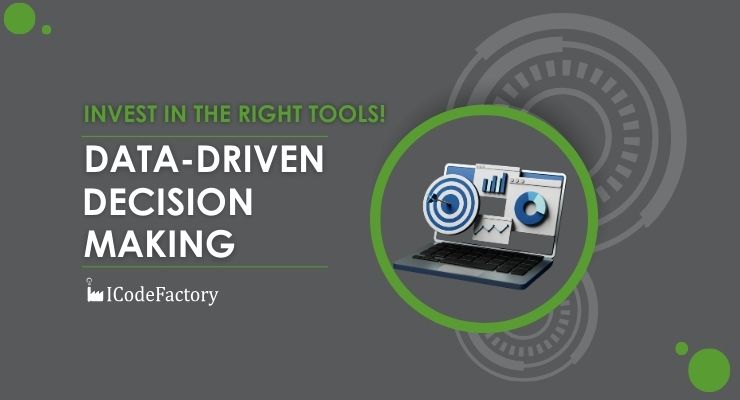According to a 2020 McKinsey survey, companies leveraging data-driven decisions are 5% more productive and 6% more profitable than their competitors. Many companies have access to vast amounts of data that could significantly improve decision making processes. However, many still rely on intuition or past experiences, which often leads to inefficiencies and missed opportunities. This approach can limit a company’s growth and leave it vulnerable to more data-savvy competitors. By embracing Data-Driven Decision Making, organizations can not only streamline their operations but also uncover new growth opportunities and reduce risks—securing a significant competitive advantage.
Four Key Benefits of Data-Driven Decision Making
Enhanced Customer Experience: Data-driven companies focus on understanding the customer journey, using DDDM to gain insights into behavior and needs. This allows them to offer tailored services and resolve issues more effectively, leading to stronger customer relationships and increased revenue. For instance, a subscription service like a video streaming platform uses data analysis to understand viewer preferences and recommend personalized content. This approach not only enhances customer satisfaction but also leads to higher retention rates, a strategy employed by many online services.
Better Strategic Planning: Using data to make decisions helps organizations set realistic goals while maintaining a competitive edge. DDDM encourages collaboration, improves communication, and fosters a shared focus on achieving organizational goals. Retailers often rely on customer purchase data, regional trends, and inventory performance to inform decision makers about where to open new stores, the types of products to stock, and how to tailor marketing efforts. This data-driven approach is commonly adopted by chains to ensure growth and market alignment, such as through tools that analyze customer behavior and predict future demand patterns.
Increased Operational Efficiency and Optimized Costs: Relying on data can uncover productivity bottlenecks and optimize resource usage, resulting in greater operational efficiency. Furthermore, it enables accurate demand forecasting, leading to significant cost savings. Logistics companies, for example, utilize data analytics to optimize delivery routes by considering variables like traffic, weather, and historical delivery patterns. This helps reduce fuel costs, improve on-time performance, and streamline operations, a practice commonly applied by delivery services to maximize efficiency.
More Accurate Forecasts: Data-driven decision making enables more precise forecasts and predictions of future events. Manufacturing companies often use historical production data to predict when equipment will need maintenance, ensuring that repairs are performed before a breakdown occurs. This proactive maintenance model not only minimizes downtime but also cuts unnecessary repair costs, a strategy widely used in industries such as automotive and heavy machinery to keep production lines running smoothly.

How Is DDDM Transforming Industries?
Data-driven decision making is significantly transforming the way various industries operate. In manufacturing, for example, predictive analytics plays a key role in minimizing downtime through preventive machine maintenance. In retail, data is leveraged to understand customer behavior, allowing businesses to create personalized experiences and dynamic pricing strategies that boost revenue and customer satisfaction. In the financial sector, data is crucial for forecasting market trends and safeguarding against fraud, ultimately enhancing both security and profitability. As for healthcare, data analysis supports more accurate diagnostics, personalized patient care, and improved resource management, directly influencing service quality and reducing costs. By harnessing the power of data, industries across the board are reshaping their business models and setting new standards in efficiency, innovation, and adaptability.
The Path to Success: Embracing Data-Driven Decision Making
Data-driven decision making is not just a tool, but a core competency of modern business. Organizations that fail to capitalize on these technologies will soon face significant challenges, while those who have already adopted them will gain a competitive edge. It is no longer optional—it’s a necessity for survival and growth.
Ready to take the next step?
Let's explore how our expertise can help you innovate and implement your vision in a digital world.
Reach out to us:ICodeFactory | Contact
